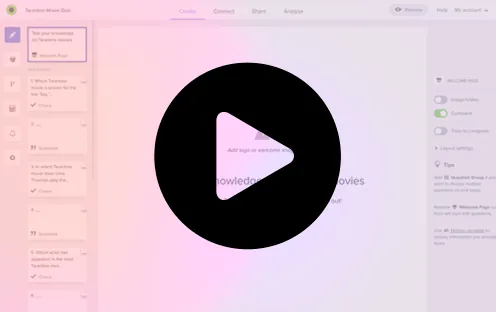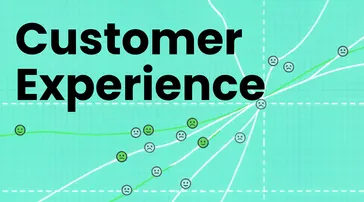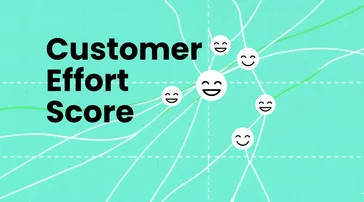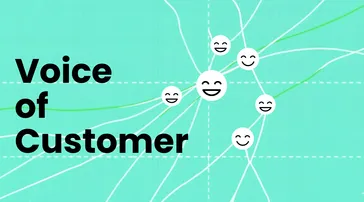10 min read
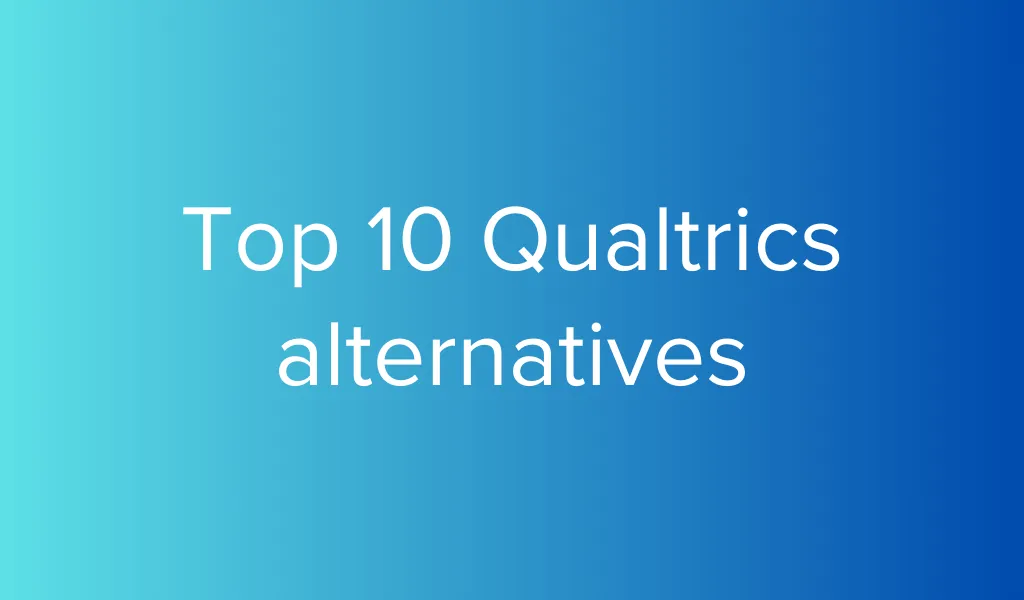
In today’s fast-paced business environment, selecting the right survey platform is critical for driving growth through customer experience and employee satisfaction. While Qualtrics has long been the standard for enterprise research, its high cost and complexity often put it out of reach for many organizations. As we move into 2025, businesses are increasingly seeking Qualtrics alternatives that offer comparable power—such as AI-driven insights and multi-channel distribution—but with greater usability and affordability. This guide explores the top competitors that can help you capture actionable feedback without the enterprise price tag.
If you are looking for powerful yet accessible survey tools, you are in the right place. We have curated a list of the best Qualtrics alternatives that combine advanced analytics, ease of use, and flexible integration options. Whether you need a solution for detailed market research, quick customer polls, or comprehensive 360-degree employee reviews, these platforms offer the versatility to meet your specific goals.
Reasons to search for Qualtrics alternatives in 2025
Seeking a better alternative to Qualtrics is a strategic decision for many modern companies. Here are the primary drivers behind this shift:
Cost-Efficiency
Qualtrics’ enterprise pricing model can be a significant barrier. Today’s market offers scalable plans and flexible pricing, allowing startups and SMBs to access enterprise-grade features without breaking the bank. Tools like Responsly provide generous free tiers and affordable growth plans that scale with your needs.
Flexibility and Customization
Modern businesses require surveys that are adaptable and brand-aligned. Leading alternatives now provide AI-powered customization, advanced logic branching, and white-labeling options that often surpass standard offerings. This flexibility ensures your surveys look professional and behave intelligently.
User Experience (UX)
In 2025, usability is paramount. Teams need intuitive drag-and-drop builders and automated workflows to reduce setup time. Unlike Qualtrics’ steep learning curve, newer platforms focus on a frictionless user experience, enabling anyone on your team to launch surveys in minutes.
Innovation & Integrations
Features like sentiment analysis, AI text analytics, and seamless integrations with stacks like HubSpot, Salesforce, and Slack are now standard expectations. Alternatives often innovate faster, offering multi-channel distribution (SMS, WhatsApp, QR codes) to meet customers where they are.
Quick Comparison: Top 10 Qualtrics Alternatives
Here is a quick overview of the best tools to replace Qualtrics, helping you decide which platform fits your specific requirements.
| Tool | Best For | Key Features | Pricing | Why Choose It |
|---|---|---|---|---|
| Responsly | CX, EX & AI Insights | AI Analytics, Omni-channel (SMS/WhatsApp), NPS, 360 Feedback | Free Plan Available | Best value for AI-driven insights & versatility |
| SurveyMonkey | General Purpose | Huge template library, Easy builder, Integrations | Free Basic / Paid | reliability and ease of use |
| Typeform | Engagement | One-question-at-a-time, Conversational design | Free Basic / Paid | High completion rates & aesthetics |
| Zonka Feedback | Offline/CX | Kiosk mode, Offline surveys, CX metrics | Paid | Great for on-premises feedback |
| SurveySparrow | Mobile/Chat | Chat-style surveys, recurring surveys | Paid | Mobile-first conversational experience |
| Zoho Survey | Zoho Users | CRM integration, Multi-language | Free Basic / Paid | Seamless for Zoho ecosystem users |
| JotForm | Forms & Payments | 10,000+ templates, Payment collection | Free Basic / Paid | Versatility beyond just surveys |
| Alchemer | Advanced Research | Logic, scripting, conjoint analysis | Paid | Close to Qualtrics in research depth |
| Sogolytics | Security | Data security, detailed reporting | Free Basic / Paid | Strong focus on data protection |
| QuestionPro | Enterprise Research | Communities, Audience panels, Analytics | Free Basic / Paid | Comprehensive research suite |
10 best Qualtrics Alternatives
1. Responsly
Responsly is a top-rated Qualtrics alternative that democratizes enterprise feedback. It combines a clean, modern interface with powerful features typically reserved for expensive platforms. Unlike complex legacy tools, Responsly allows you to create sophisticated surveys in minutes using an intuitive builder or its AI survey generator.
What truly sets Responsly apart is its focus on actionable intelligence. It offers sentiment score analysis for open-ended text, giving you immediate insight into respondent emotions without manual coding. Its multi-channel distribution capabilities are unmatched, allowing you to reach audiences via SMS, WhatsApp, email, Slack, and QR codes.
Responsly is versatile enough for both customer experience (CX) and employee engagement. With features like NPS benchmarking, 360-degree feedback, and customizable templates, it provides a complete ecosystem for listening to your most important stakeholders.
Key Features:
- AI & Sentiment Analysis: Automatically categorize text responses and measure sentiment to understand the “why” behind the data.
- Multi-Channel Reach: Distribute surveys via email, SMS, WhatsApp, website widgets, and links.
- Real-Time Dashboards: Visual analytics and custom reports empower data-driven decisions instantly.
- Employee Suite: dedicated tools for employee satisfaction and performance appraisals.
- Deep Integrations: Connect with HubSpot, Slack, Zapier, and Google Workspace to automate your feedback loops.
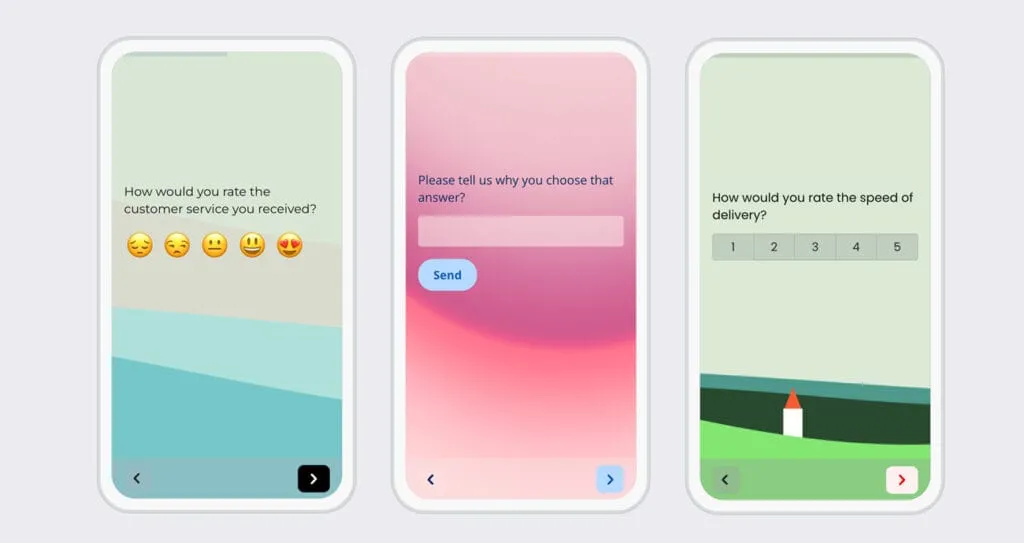
2. SurveyMonkey
SurveyMonkey is a household name in the survey world and remains a strong competitor due to its ubiquity and ease of use. It is an excellent choice for individuals and teams who need to get a survey up and running quickly without a steep learning curve.
Key Features:
- Ease of Use: A intuitive interface that requires zero training.
- Template Library: Access to hundreds of expert-written questions and templates.
- Integrations: Connects seamlessly with Salesforce, Marketo, and Microsoft Teams.
- Benchmarks: Compare your results against industry standards (paid feature).
Pros:
- Extremely user-friendly for beginners.
- Strong brand recognition increases respondent trust.
- Robust free tier for basic needs.
Cons:
- Professional features can get expensive quickly.
- Design customization is somewhat limited compared to modern tools.
3. Typeform
Typeform revolutionized online data collection with its “one-question-at-a-time” interface. This conversational approach mimics a human chat, often resulting in higher completion rates and better data quality. It is widely used for lead generation, feedback, and creative forms.
Key Features:
- Conversational Design: Keeps respondents focused and engaged.
- Logic Jumps: Create personalized paths based on previous answers.
- Media Support: Easily embed images and videos into questions.
- Integrations: Extensive library of native integrations and Zapier support.
Pros:
- Beautiful, mobile-friendly designs out of the box.
- Great for brand-heavy, visual surveys.
- High engagement rates.
Cons:
- Can be pricey for higher response volumes.
- Reporting features are less advanced than analytical tools like Qualtrics.
4. Zonka Feedback
Zonka Feedback is a CX platform designed for multi-location businesses. It excels in capturing feedback both online and offline, making it a favorite for retail, hospitality, and healthcare sectors.
Key Features:
- Offline Surveys: Collect data on tablets and kiosks without internet.
- CX Metrics: Built-in CSAT, NPS, and CES tracking.
- Real-time Alerts: Instant notifications for negative feedback to enable service recovery.
- Location-based Reporting: Compare performance across different store branches.
Pros:
- Ideal for on-premises feedback collection.
- Strong focus on closing the feedback loop.
- Comprehensive offline capabilities.
Cons:
- Interface can feel a bit cluttered.
- Advanced analysis features are reserved for higher tiers.
5. SurveySparrow
SurveySparrow turns surveys into conversations. With a mobile-first approach, it offers chat-like surveys that claim to boost completion rates by 40%. It also includes unique features like recurring surveys for continuous pulse checking.
Key Features:
- Chat Interface: Surveys that feel like messaging apps.
- Recurring Surveys: Automate sending of periodic check-ins.
- Offline Mode: Collect data even without connectivity.
- NPS Platform: Dedicated module for Net Promoter Score tracking.
Pros:
- Highly engaging for mobile users.
- Great for employee pulse surveys.
- Modern, clean UI.
Cons:
- Reporting dashboard is less customizable than some competitors.
- Pricing structure can be complex.
6. Zoho Survey
Zoho Survey is part of the massive Zoho business suite. If your organization already uses Zoho CRM or Zoho Desk, this is a logical addition. It offers a solid set of features at a very competitive price point.
Key Features:
- Ecosystem Integration: flawless data sync with Zoho CRM.
- Multi-language Support: Create surveys in over 30 languages.
- Offline Capability: Mobile app allows for offline data collection.
- Reporting: Cross-tabulation and trend analysis reports.
Pros:
- Excellent value for money.
- Deep integration with other Zoho apps.
- Unlimited surveys on paid plans.
Cons:
- Templates and design options feel a bit dated.
- Less intuitive for non-Zoho users.
7. JotForm
JotForm is primarily a form builder that has evolved into a powerful data collection tool. It is incredibly versatile, allowing you to create everything from simple surveys to complex order forms with payment processing.
Key Features:
- 10,000+ Templates: An enormous library of pre-made forms.
- Payment Integration: Collect payments via PayPal, Stripe, and more directly in forms.
- Widgets: Add functionality like e-signatures, photo uploads, and more.
- App Builder: Turn your forms into a no-code mobile app.
Pros:
- Unmatched versatility for various business needs.
- Easy drag-and-drop builder.
- Strong free plan.
Cons:
- Survey-specific analytics are not as deep as dedicated survey tools.
- Can be overwhelming due to the sheer number of options.
8. Alchemer (formerly SurveyGizmo)
Alchemer positions itself as a flexible platform that bridges the gap between simple survey tools and enterprise heavyweights like Qualtrics. It is designed for serious researchers who need advanced logic and reporting without the enterprise bloat.
Key Features:
- Advanced Logic: Scripting capabilities for complex survey behavior.
- Conjoint Analysis: Sophisticated market research question types.
- Workflow Automation: Trigger actions in other systems based on responses.
- Security: Enterprise-grade security compliance.
Pros:
- Very powerful for market research.
- Highly customizable for developers.
- Good balance of power and usability.
Cons:
- Steeper learning curve than basic tools.
- Pricing is on the higher side.
9. Sogolytics (formerly SoGoSurvey)
Sogolytics focuses heavily on data security and comprehensive reporting. It is a robust platform suitable for enterprises, government agencies, and educational institutions that prioritize data integrity.
Key Features:
- Secure Data: HIPAA compliance and strong data governance features.
- Advanced Reports: Omni-report feature for tracking diverse datasets.
- Assessment Tool: Create scored quizzes and assessments.
- Panel Management: Manage your own panel of respondents.
Pros:
- Excellent for regulated industries.
- Strong reporting and statistical analysis tools.
- Reliable customer support.
Cons:
- Interface can be less modern than competitors.
- Some advanced features are locked behind expensive tiers.
10. QuestionPro
QuestionPro is a direct competitor to Qualtrics in the enterprise space, offering a full suite for research, CX, and workforce management. It provides deep analytical capabilities and access to millions of respondents.
Key Features:
- Research Suite: Advanced tools for conjoint analysis, MaxDiff, and heatmaps.
- Audience: Access to a global panel of respondents.
- Communities: Build and manage insight communities.
- LivePolls: Real-time polling for events and webinars.
Pros:
- Comprehensive feature set for professional researchers.
- Good free license for basic use.
- Robust analytics.
Cons:
- User interface can be complex for beginners.
- Customer service quality can vary.
Choosing the right survey tool for your needs
Selecting the right survey tool is more than just comparing feature lists; it is about finding the platform that aligns with your team’s workflow and goals.
If you need a simple, low-friction tool for basic forms, Typeform or SurveyMonkey are excellent starting points. However, if your focus shifts to advanced customer insights, employee feedback, and AI-driven analysis, Responsly stands out as the superior Qualtrics alternative.
With Responsly, you get the power of enterprise tools—like sentiment analysis and multi-channel distribution—packaged in a user-friendly interface that anyone can master. It allows you to target specific customer demographics, collect precise feedback via their preferred channels (like WhatsApp or SMS), and instantly turn quantitative data into qualitative insights.
Ready to upgrade your feedback strategy? Sign up for Responsly today and start collecting better insights in minutes.
